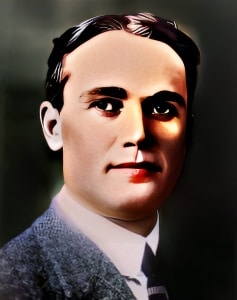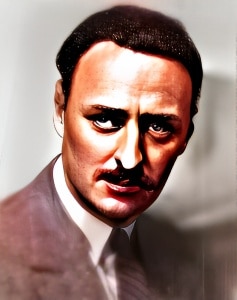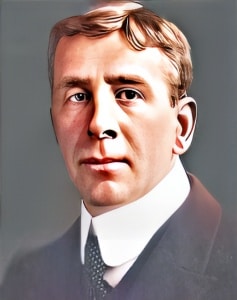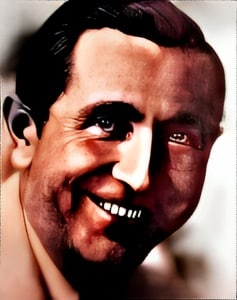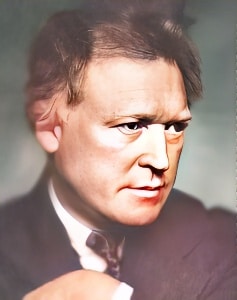 Werner Krauß, born on June 23, 1884, in Gestungshausen, Bavaria, Germany, was a distinguished German actor renowned for his contributions to both the theater and the silent film industry.
Werner Krauß, born on June 23, 1884, in Gestungshausen, Bavaria, Germany, was a distinguished German actor renowned for his contributions to both the theater and the silent film industry.
He remains widely celebrated for his exceptional talent and the indelible mark he left on the world of cinema.
Krauß’s career began in the world of theater, where he honed his acting skills and established a reputation as a gifted and versatile performer. He excelled in a wide range of roles, from classical dramas to contemporary plays, and his commanding presence and distinctive stage presence quickly set him apart from his peers.
One of the pivotal moments in Krauß’s career was his collaboration with director Robert Wiene on the iconic 1920 silent film “The Cabinet of Dr. Caligari.” In this groundbreaking work of German expressionist cinema, Krauß portrayed the enigmatic Dr. Caligari, a sinister figure with a malevolent agenda. His portrayal was both haunting and memorable, contributing significantly to the film’s success.
“The Cabinet of Dr. Caligari” is celebrated for its visually striking and highly stylized set design, characterized by distorted, angular, and nightmarish architecture. The film’s unsettling atmosphere is in part attributed to Krauß’s commanding performance, which perfectly captured the malevolence of the character. His portrayal of Dr. Caligari became an enduring symbol of cinematic horror and a benchmark for future actors in the genre.
Krauß’s collaboration with Wiene continued with “Genuine” (1920), another notable German expressionist film. In “Genuine,” he played a wealthy art collector who becomes captivated by the mesmerizing and mysterious title character, portrayed by Fern Andra. The film further solidified Krauß’s reputation as a masterful actor in the burgeoning world of silent cinema.
His collaboration with groundbreaking directors extended beyond Wiene. Krauß also worked with acclaimed director F.W. Murnau, starring in “ Nosferatu” (1922), a classic horror film that adapted Bram Stoker’s “Dracula.” In this film, he portrayed Thomas Hutter, a character who encounters the vampire Count Orlok. Krauß’s performance added depth and intensity to the film’s eerie atmosphere.
As the silent film era waned and the transition to sound films began, Krauß, like many of his contemporaries, faced the challenge of adapting to this new medium. While some silent film actors struggled with the shift, Krauß successfully made the transition. His distinctive voice and powerful acting abilities allowed him to continue his successful career in sound films.
Werner Krauß’s impact on the world of cinema extended well beyond the silent film era. He remained an esteemed and revered figure in the German film industry, continuing to perform in a variety of roles in sound films. His enduring legacy as an actor, particularly in the horror genre, remains a testament to his extraordinary talent and dedication to his craft.
In conclusion, Werner Krauß was a remarkable actor who left an indelible mark on the world of cinema. His contributions to the silent film era, particularly his iconic roles in “The Cabinet of Dr. Caligari” and “ Nosferatu,” showcased his extraordinary talent and helped define the horror genre. Krauß’s ability to adapt to the transition to sound films and continue his successful career underscores his versatility and enduring impact on the film industry. His performances continue to captivate audiences and inspire generations of actors and filmmakers.
Loading live eBay listings...

